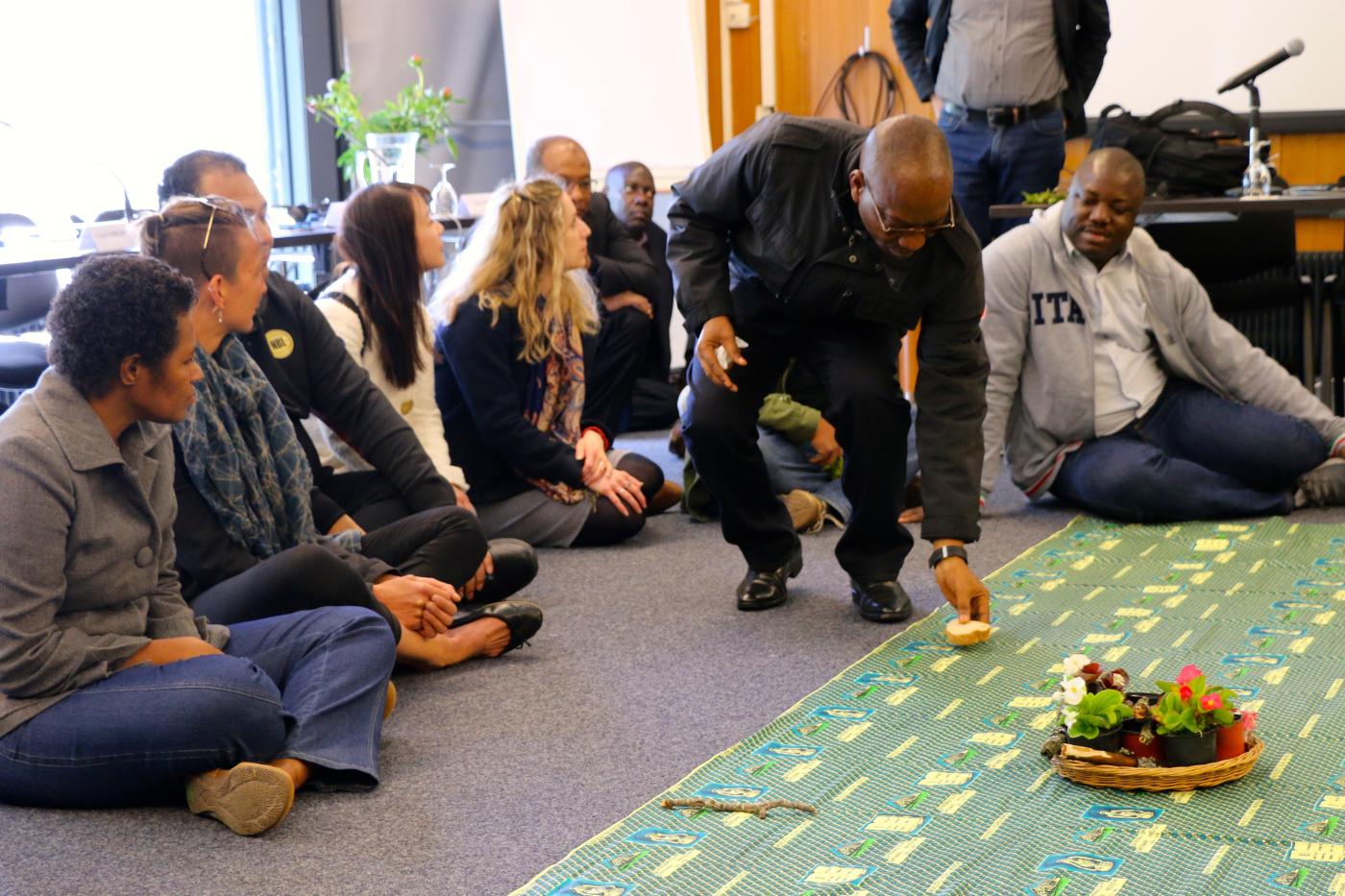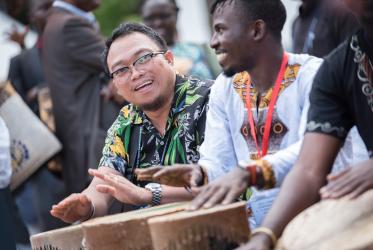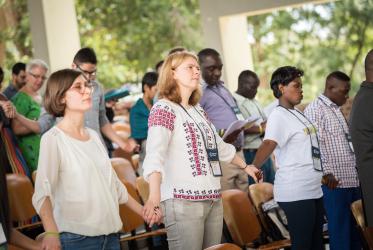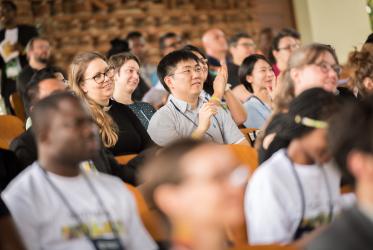Over 30 seasoned theological educators, emerging theologians and researchers, church ministers and practitioners engaged in grassroots adult education gathered at the Ecumenical Institute Bossey, near Geneva, Switzerland, 12-15 May, to reflect on eco-theology and theological education.
“Your commitment to eco-theology as a theme for ecumenical theological education is very important for the way we want to engage the churches in the conversations at the next assembly in Karlsruhe and beyond”, said the general secretary of the World Council of Churches (WCC), Rev. Dr Olav Fykse Tveit, as he greeted the group.
Participants of the consultation came from the Pacific, Africa, Asia, Latin America, North America and Europe to discuss the specific contribution of indigenous traditions to the understanding of human relations with other elements of creation and how this connectedness with all creation shapes a new approach in eco-theology.
Eco-theology
The Oceanian initiative for an eco-relational-theology was affirmed by the attendance, as it is anchored both in a Trinitarian theology and in indigenous relationality conducive for care of creation practices.
A rich variety of contextual presentations ranging from milkwood trees serving as authentic, living monuments for the collective trauma of the South African KhoiSan, the subsistence economy and cultivation modes of the North East Indian indigenous Mizoram community, to the peoples of the Amazonian region striving for the preservation of the rain forests, was complemented by systematic reflections on the oikos triplets ecology, economy and oikoumene, as well as on the relevance of ecology as transversal issue for ecumenical theology.
The consultation was planned in partnership between the WCC department on Ecumenical Theological Education and the Association of Protestant Churches Missions in Germany, whose head of theological education department, Rev. Dr Michael Biehl, valued the outcome of the meeting as “one of the important areas of shared interest between the two organizations, and as a decisive field for the support to theological institutions in different regions of the world.”
“Churches and theological institutions have to be encouraged to pursue revisiting language, ways of interpreting biblical texts and to innovate educational praxis through a holistic lens of all creation as interconnected, and through more community-based and experiential learning models”, said Prof. Amélé Ekué, professor of Ecumenical Ethics in Bossey and programme executive for WCC’s Ecumenical Theological Education.
As the event closed, participants decided to continue the reflection on a green reformation and its significance for theological education. They will prepare a message with recommendations to churches and theological institutions to be shared with the WCC’s Commission on Ecumenical Education and Formation, that gathers in October and November.
"Green Reformation: seeds of hope for an ecological theology" - WCC news release 9 May 2019
WCC's work on Ecumenical Theological Education
Learn more about the work of the WCC on Care for Creation and Climate Justice










